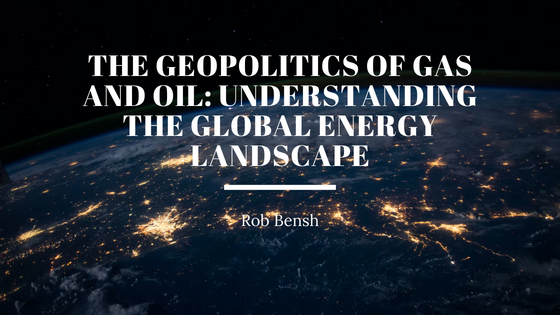The geopolitics of gas and oil are complex and play a significant role in shaping the global energy landscape. Access to these resources can be a source of economic power, influence, and security for countries and regions around the world. In this blog, we will explore the geopolitics of gas and oil and how they shape the global energy landscape.
Gas and oil are strategic resources that play a vital role in the global energy mix, providing fuel for transportation, heating, and electricity generation. Access to these resources can be a source of economic power, influence, and security for countries and regions. Countries with abundant gas and oil resources, such as Russia, the United States, Saudi Arabia, and Iran, are major players in the global energy landscape and have significant influence over energy markets and prices.
The geopolitics of gas and oil can also be a source of geopolitical tensions and conflicts. Access to gas and oil resources can be a source of rivalry and competition among countries, leading to political and economic tensions. Conflicts over oil and gas resources have played a significant role in global politics and international relations, such as the Gulf War and the Russian-Ukrainian conflict.
The geopolitics of gas and oil also influence global energy security. Countries that rely heavily on gas and oil imports can be vulnerable to supply disruptions and price volatility, which can have significant economic and social consequences. Energy security is a critical issue for countries and regions around the world, and many are investing in diversifying their energy portfolios to reduce their dependence on gas and oil imports.
In conclusion, the geopolitics of gas and oil play a significant role in shaping the global energy landscape. Access to these resources can be a source of economic power, influence, and security for countries and regions, but it can also be a source of geopolitical tensions and conflicts. Diversifying energy portfolios and investing in renewable energy sources can enhance energy security and reduce dependence on gas and oil imports. Understanding the geopolitics of gas and oil is essential to navigating the complex global energy landscape and promoting sustainable energy development.
